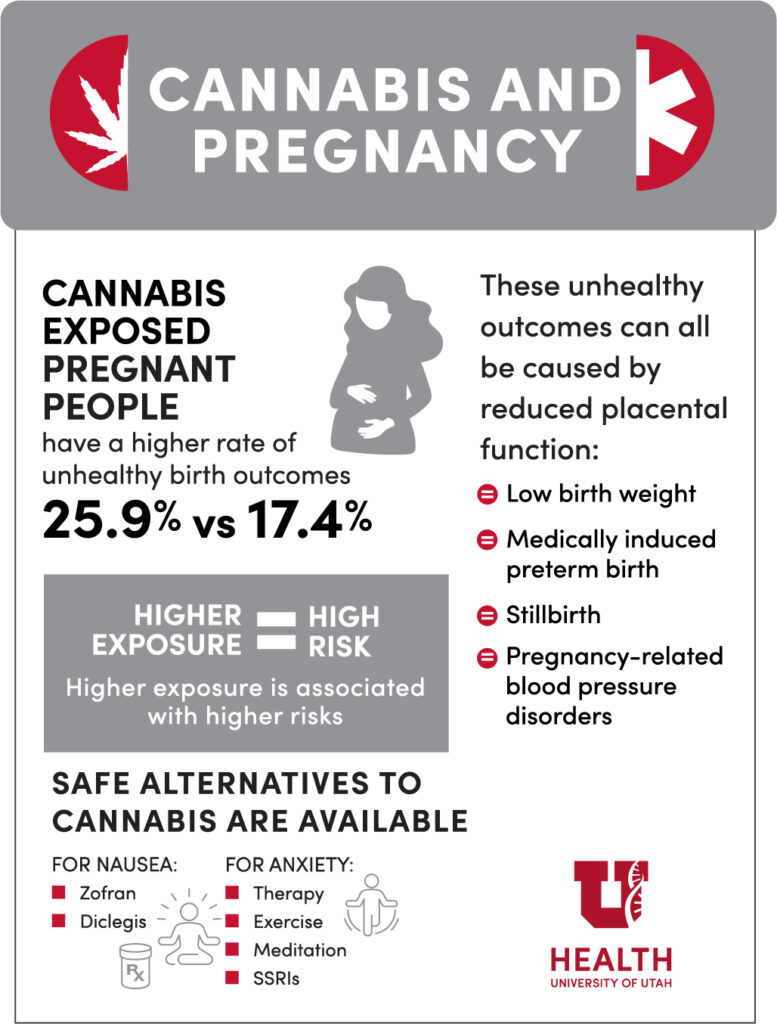Cannabis use is increasing among reproductive age females. However, the effects of cannabis use on pregnancy and pregnancy outcomes remains largely unknown. Torri Metz, MD, MS, vice chair of research of obstetrics and gynecology, and Robert Silver, MD, professor and chair of obstetrics and gynecology, examined if cannabis use during pregnancy was associated with adverse pregnancy outcomes mediated by the placenta.
They analyzed the pregnancy outcomes of more than 9,000 people, including 610 who used cannabis during their pregnancies. Because self-reports of cannabis use can be unreliable, they used urine samples to estimate study participants’ exposure. After controlling for variables like socioeconomic status, nicotine use, and certain medical conditions
they found that individuals who used cannabis had a higher frequency of a composite adverse outcome which included small for gestational age babies (<5th percentile for age and sex), hypertensive disorders of pregnancy, medically indicated preterm birth and stillbirth. In addition, they found that ongoing use throughout pregnancy, and heavier use were associated with a higher risk of adverse pregnancy outcomes. Information about the risks of maternal cannabis use will be critical in counseling patients so they can make informed decisions about cannabis use during pregnancy.
References:

Cannabis Exposure and Adverse Pregnancy Outcomes Related to Placental Function. Metz TD, Allshouse AA, McMillin GA, et al. JAMA. 2023;330(22):2191–2199. doi:10.1001/jama.2023.21146


